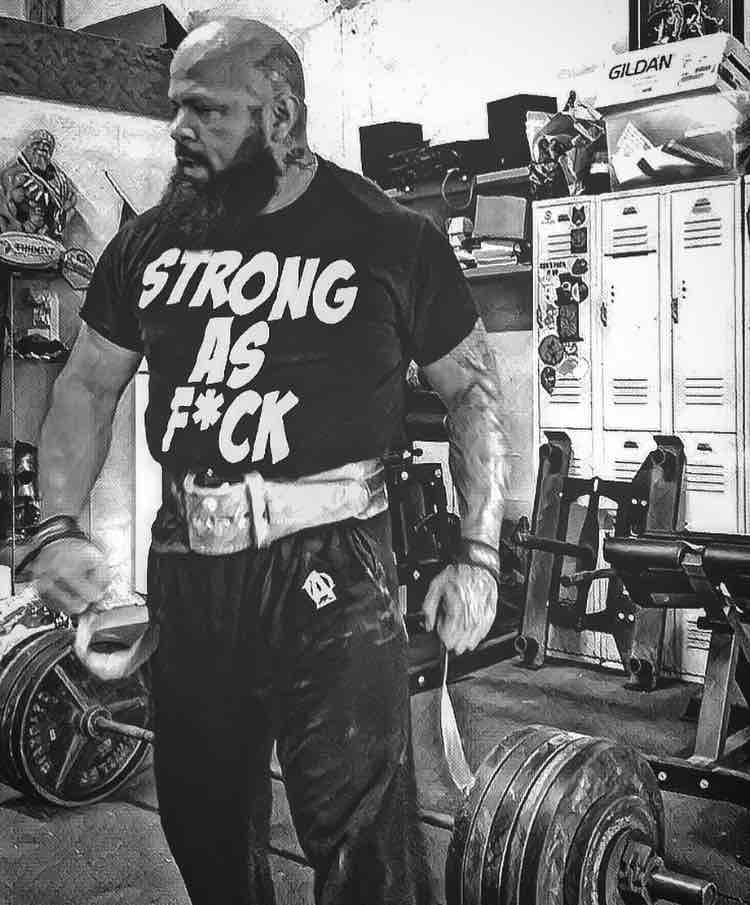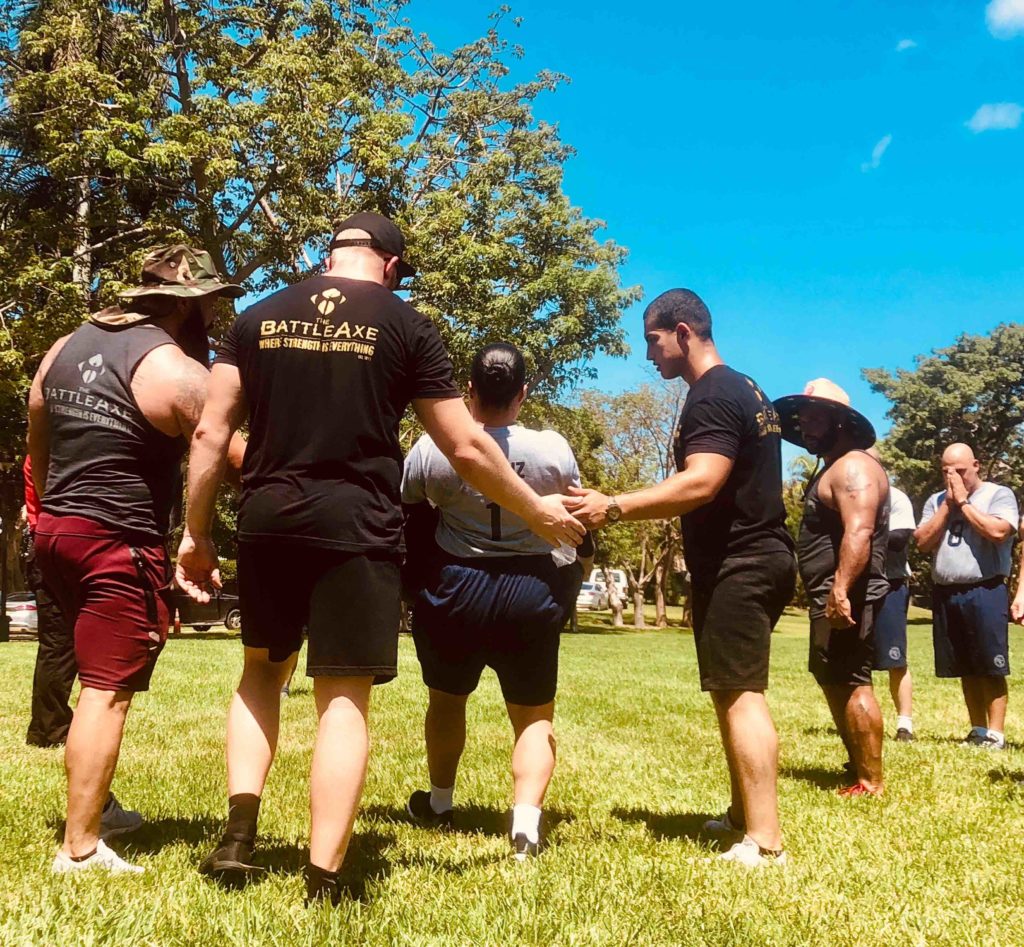19 Oct If You Want to Compete
By Mike De La Pava
Somewhere in your athletic soul the fire to compete will burn bright one day. Whether it is raging for the first time, or years into your competitive “career,” the time will come to step on to the battlefield of the sport. Often, it comes after watching our peers or hero compete. Other times, it happens after watching an intense movie, and if you’re anything like me, it knocks on your door because that is what you were born to do. There are so many reasons to compete I could write 4-5 articles on just those separate reasons alone, but that is not what this article’s purpose is. I won’t sit here being judge and jury on “why” it is what you’re doing, but I will share some advice on “if” you should do what you think you should do. Still following me? I hope so, because this is where it gets good…
I have been a competitive athlete for over a decade now. As some of you may know, many of these years included various contact sports, of which I am paying for now, but still fall asleep with a smile on my face for having done them. Being privy to various sports has given me the opportunity to compete for some amazing reasons and some shitty ones too. I won’t go as far as to say “do as I say, not as I do” because I have learned a great deal in my years. I will go with the “try and do what I suggest instead of what I did…” That’s a thing, isn’t it?
The process of competing brings on many variables, paths, and concrete affirmations that many of us might not be ready for in many ways. I am not asking anyone here not to compete, but rather to go through this small checklist so that you optimize your journey. There is nothing worse than a person fighting/competing/ for the wrong reason. Not only is it evident to everyone around them, but it’s a terrible feeling knowing you didn’t give it your all to get to the battlefield. Hopefully, this happens very few times in your life, but anyone that has put years into a sport can attest that there are times when signing up should have never taken place. Below is a minor checklist that I have found INVALUABLE to not only myself but to the dozens of athletes I have coached over the years. I have had this very conversation so many times it is hard to count, but I can guarantee that I have repeated this list in one way, shape, or form to drive the point home.
Are you ready to compete?

Mental
It is easy to be mentally ready for competition from the outside looking in. So many times, we are emotionally driven to prove ourselves because of individual battles in our life that we are blinded to mental necessities brought upon by sports. When preparing for competition make sure to look outward and forward; Understand that competition prep will deliver its stress, challenges, and obstacles in many forms that will stack heavily against your favor if you are not mentally ready. This is the same mental strength that will get you up in the morning, keep you away from bad habits, and keep you at home on weekends. It is the same mental game that will allow you to push your body to a new level, to face injury and pain with a fearless resolve and more importantly – keep your vision brave and steadfast. It is effortless to say you are mentally ready when looking only at your strengths. Take a moment to ask yourself if you are prepared to overcome failures, pain, and challenges that would crush the average person. Contemplate; marinate on this slowly; only then, if you find true courage then check this off your list.
Physical
Being physically prepared is probably the easiest to check off on paper but in many cases the most natural point to overlook. I have dealt with so many lifters who start competitive prep out of shape, beat up, or even severely injured. Often we make the mistake of using a competition prep to get us where we want to be from a physical standpoint that we overlook the fact that we are not even at a state that should be pushed that hard. Let us remember that a competitive cycle will involve pushing your body beyond its limit and in many cases, physical capabilities.
In some cases, this is invaluable to our growth in the sport, but it is also a major reason why starting these preps relatively healthy is something to focus on. This drives the point home why staying healthy, strong and mobile during the off-season is an absolute must for any competitive athlete. Starting a competition prep with a “nagging pain,” or a “tweak” and expecting it to settle is what leads to not only major injuries, but also a poor performance. I like to take 6-8 weeks before a competitive cycle where I fine tune my training, eating habits and life habits to facilitate proper healing and physical preparedness. I enjoy cruising into a training cycle feeling physically confident and free of major pain or injuries. I have learned this invaluable rule the hard way many, many times before and it is not something I care to repeat. Take some time to let your body heal and feel good before picking a show, the rest is fun after that. Think this out in detail. If a proper assessment of your physical status is a green light, check this off your list.
The Reality
I left this one for last because it is often the most sensitive subject and the one I get the most backlash for. Not that it stops me from expressing its importance, but one that needs to be given the most thought. Although this subject has a lot of similarities that tie it in to the mental readiness of an athlete, which in turn ties into the physical, I would say the “reality” of the athlete is by far the most emotional and often the one that comes back to bite us in the ass. Whether it’s your first comp or your 100th, every competitive training cycle takes its toll on everything around you. If you take your sport very seriously, as I do, then you have felt this first hand and if you haven’t felt it… you will. I call it “the reality” because it is just that: real talk. The conversations that happen in the gym, the trenches, over beers during war stories, or in between sets when the delight of a lift reveals just how deep you feel about it. The reality is your bank account, your job, your significant other, your house, your kids, your parents, your dog, your friends, your favorite little diner on the corner over there that you can’t go to because that BLT you love is going to kill your weigh-in. The reality is not having that extra beer with your friends on the weekend because your body needs to repair… hell, how about not going out at all because you’re so focused on your training you can’t deal with all the food and extracurricular activities.
The Reality is about missing time with your loved ones because you’re so sore and tired that sleeping and eating all day is your only goal. It is about dropping so much money on food, travel and training expenses that those vacations you see people go on on TV are not going to happen this year. The reality is putting everything and everyone on a lower octave, a dimmer light, and at a secondary place in your life so that you can wake up every day and absolutely crush your goals for ten weeks. Let me reiterate, this particular point on the checklist is not designated heavily for the serious athlete. If you are a weekend warrior and think this doesn’t apply to you… look again. Although some of these examples may sound extreme, what you give up for your sport has a ripple effect that often goes unseen, and you need to consider it. For those of you who feel what I am saying deep down in your spirit, give these words careful and mindful consideration. No one goes into a competition alone, no matter how trendy and appealing the “lone wolf” memes are… everyone takes a little bit from someone into battle. It would behoove you to take time and ask yourself if you are willing to not only accept all these realities but also to push forward knowing life has to take a step back behind you. If these words have spiked nothing but confidence and drive, then check this off your list and start considering your competition date.

As I said before, there are various reasons to compete, and I would argue that there are several of these checklists lying around on some forgotten chalkboard, or training journal. Some might be vastly more in-depth, and some might be even shorter, but the idea remains the same. A competition will demand something from you that will push you in all aspects of life. The challenge and the obstacle might be the very reason why you’re doing it in the first place, but don’t forget its effects on everything around you. Give the training cycle its proper respects both in and out of the gym, and I PROMISE YOU it will pay you back tenfold. There is no greater feeling than having stepped out on to the competitive battlefield knowing you gave every ounce of your life and body to fight for your goals. It is true, there will always be a winner, but there is a difference between losing and being a loser. Being true to your journey and true to yourself is the only way to really say, “I didn’t lose, I learned.” Everything else is bullshit memes.
“Never Stray from The Way” – MDLP
To read more from Mike and to follow his training, check out The MDLP Scrolls. The meet prep mentality is something Team PRS takes very seriously. To learn more about how we approach our Meet-Prep vs. Off-Season, grab your copy of 10/20/Life 2nd Edition.
Latest posts by Mike De La Pava (see all)
- MDLP: Training 8 weeks out - March 15, 2019
- MDLP: Deload week and Old Man Logan - March 6, 2019
- MDLP: Blood, Sweat and Flesh - February 28, 2019





Sorry, the comment form is closed at this time.